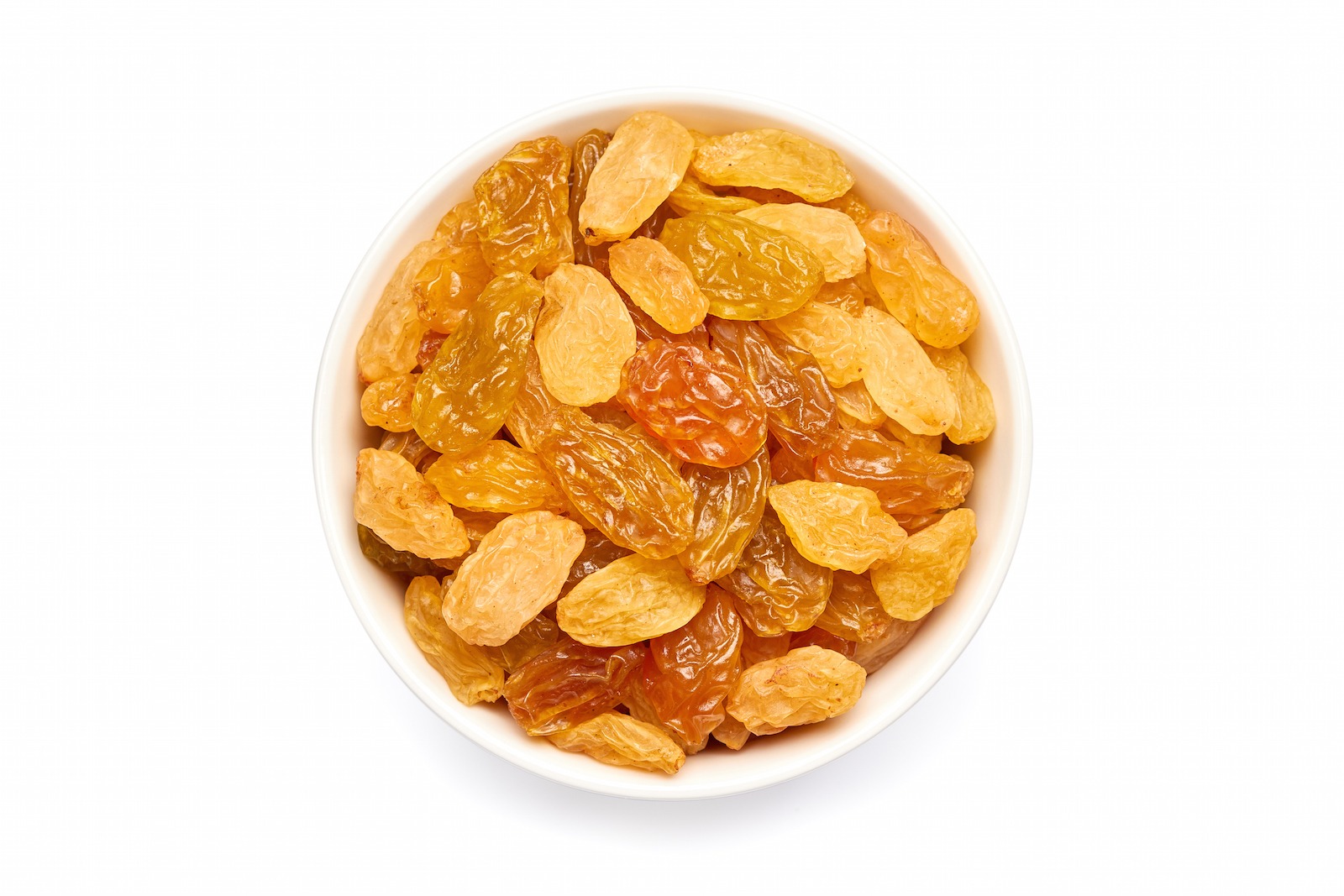 Eat Empowered
Eat Empowered  Healthy Eating Tips
Healthy Eating Tips  Healthy Snacking Ideas
Healthy Snacking Ideas  Sugar
Sugar
Dried Fruit 101: Is it Healthy? And Is Freeze-Dried Better than Regular Dried?
By Keri Glassman, MS, RD, CDNHome » Eat Empowered » Dried Fruit 101: Is it Healthy? And Is Freeze-Dried Better than Regular Dried?
Ask Keri: Is Dried Fruit Healthy?
Keri Says: Fruit, in its most basic form—whole and fresh—is a delicious gift from nature. It’s sweet, yes, but the natural sugar is balanced with tons of vitamins, minerals, fiber, water and phytonutrients (including my favorite, antioxidants!).
There’s nothing like biting into a crisp apple or throwing a handful of plump, juicy blueberries on top of your yogurt.
RELATED: Watching your sugar? Here are 5 lowest-sugar fruits that satisfy your sweet tooth
For snacking, dried fruit comes in handy, because it’s super portable and lasts a long time. You can throw a baggie of dried fruit in your purse and not worry about peach juice soaking your wallet. And, of course, you can still eat it a few days (or even a few weeks) later.
But is it as healthy as fresh fruit? And how do the many varieties at the grocery store compare? Are some healthier than others? Here’s what you need to know.
What’s the Difference Between Dehydrated, Dried and Freeze-Dried?
Despite differences in technique and terminology, these preservation processes achieve a similar result. Essentially, drying, freeze-drying and dehydrating are all ways of saying that the water has been removed from the fruit.
RELATED: 5 Creative, Healthy Ways to Add More Fruit to Your Diet
Dried or dehydrated—in this context, those two words mean the same thing. You can dry fruit in an oven or even under the sun (some cultures use this ancient tradition to dry fish, too). If you’re buying dried fruit at the store, commercial dehydrators were probably used. If you invest in a dehydrator or an air fryer to use at home, those fresh apple slices you put in it will become dried apples.
Meanwhile, freeze-drying is a very different process, using cold instead of heat to attain a similar result. By placing fruit in a below-freezing vacuum chamber, then slowly raising the temperature, the fruit’s natural moisture evaporates—transforming from ice directly into water vapor, without becoming liquid in between.
Fruits labeled dehydrated or dried are generally going to be tough, chewy and dense, while freeze-dried generally has a lighter, airier texture. Personal preference regarding mouthfeel will guide your choices.

Is Dried Fruit Healthy? The Nutrition Facts
Fruits contain a lot of water. When you remove that H2O via any of these processes, most of the same nutrients that were in the original fruit are essentially concentrated into a smaller package. For that reason, if you compare things like raisins and grapes ounce for ounce, raisins are going to have more of the important nutrients like vitamins and fiber.
On the other hand, you’re also going to get a concentration of sugars and calories in dried fruits. For example, one cup of fresh apricots has 74 calories and 14 grams of sugar. That same cup of dried apricots contains 313 calories and 70 grams of sugar.
The big exception to this general rule is vitamin C, which is water-soluble—hence, a significant decrease occurs after drying. Fiber, contained in the skin of the fruit, also breaks down in the drying process. Other antioxidants (besides vitamin C) can also be affected, with levels of some increasing and others decreasing. However, as I mentioned, you’re still getting lots of important nutrients in significant amounts.
But that “concentrated” effect essentially means you’re eating more of the fruit. Think about what 20 raisins looks like (not that much) compared to 20 grapes (a whole bowl). So, the fruits’ sugar, and therefore calories, are also condensed. It’s natural sugar, but you’re still getting more of it quickly, so pay attention to your portion size.
RELATED: Is the Natural Sugar in Whole Foods Healthier Than Added Sugar?
Which is better: (Heat-)Dried or Freeze-Dried?
Let’s break it down! As you can imagine, one community that’s had tons of experience with dried food—besides astronauts—are hikers and campers. When you’re carrying all your food for several days (or longer) on your back, you’re going to need to reduce weight. According to sites for hikers and to businesses that cater to them, freeze-dried has some advantages.
For starters: About 80-95% of a food’s moisture gets removed in standard heat drying, depending on the exact process used. On the other hand, 98-99% of moisture gets extracted by freeze-drying. That’s why freeze-dried food is crunchier. That means the shelf life of dehydrated food is several years, while freeze-dried food can last not just years but decades. Meanwhile, freeze drying tends to preserve more nutrition than processes that use heat.
But even if freeze-drying sounds better overall, it’s not something you can do yourself. The DIY-minded can use heat to dry food at home, typically with a special appliance: Either a dehydrator or an air fryer. Freeze-drying, meanwhile, requires very specialized equipment, so you’re going to have to buy it instead of make it.
Check the label for added sugar or preservatives
The other common additive in heat-dried fruit is the preservative sulfur dioxide. It helps preserve freshness and color, so you’ll find it more in light-colored dried fruits, like apricots. Sulfur dioxide is a naturally occurring compound and is generally safe at the amounts you’d get in a few apricots. However, a small portion of the population has sulfite sensitivity. Most of those people are asthmatics, and reactions to ingesting sulfur dioxide can range from respiratory to GI symptoms. If you have asthma, it may be better to skip dried fruits that list this ingredient.
Finally, some companies that sell dried or freeze-dried fruits add extra sugar to make the snack even sweeter. My advice is to check the nutrition label and skip bags that include sugar as an ingredient. There’s enough already—you don’t need more.
(Images: Shutterstock)
About Keri Glassman, MS, RD, CDN
Keri Glassman, MS, RD, CDN, is a renowned celebrity nutritionist, healthy cooking expert, and wellness thought-leader. She is the founder and CEO of Nutritious Life and The Nutritious Life Studio, an online certification that provides unparalleled, forward-thinking education to individuals of various backgrounds looking to establish successful careers in the health and wellness industry.
RECENT ARTICLES

Want a sneak peek inside the program?
Get FREE access to some of the core training materials that make up our signature program – Become a Nutrition Coach.
Get Access













































































































































































































































































































































































































































































































































































































































































































































































































































































































































































































































































































































































































































































































































































































































